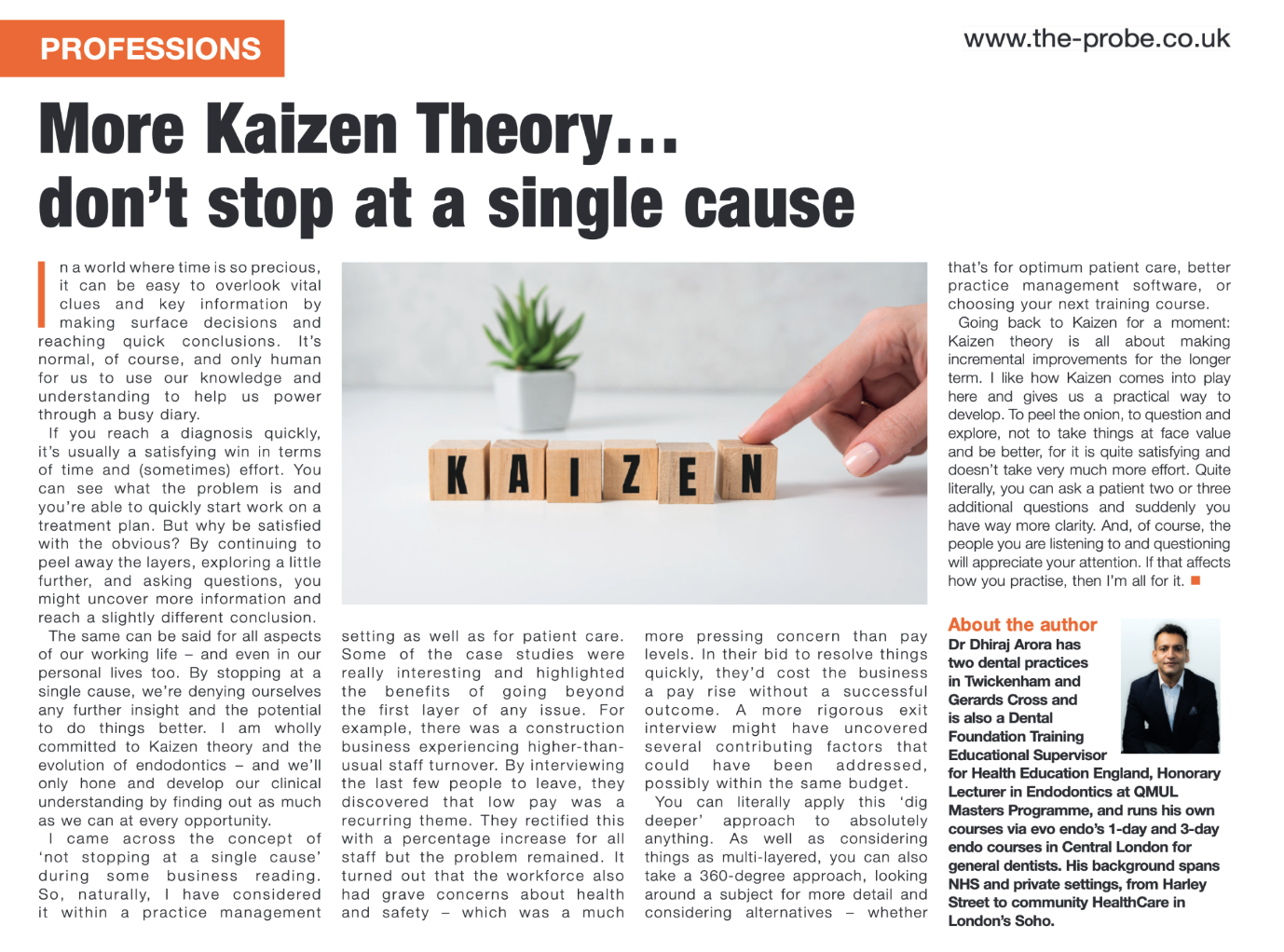More Kaizen… don’t stop at a single cause
26th June 2023

[The Probe, June 2023]
In a world where time is so precious it can be easy to overlook vital clues and key information by making surface decisions and reaching quick conclusions. It’s normal of course and only human for us to use our knowledge and understanding to help us power through a busy diary.
If you reach a diagnosis quickly it’s usually a satisfying win in terms of time and (sometimes) effort. You can see what the problem is and you’re able to quickly start work on a treatment plan. But why be satisfied with the obvious? By continuing to peel away the layers, exploring a little further, and asking questions, you might uncover more information and reach a slightly different conclusion.
The same can be said for all aspects of our working life – and even in our personal lives too. By stopping at a single cause we’re denying ourselves any further insight and the potential to do things better. I am wholly committed to Kaizen theory and the evolution of endodontics – and we’ll only hone and develop our clinical understanding by finding out as much as we can at every opportunity.
I came across the concept of ‘not stopping at a single cause’ during some business reading so naturally I have considered it within a practice management setting as well as for patient care. Some of the case studies were really interesting and highlighted the benefits of going beyond the first layer of any issue. For example, there was a construction business experiencing higher than usual staff turnover. By interviewing the last few people to leave they discovered that low pay was a recurring theme. They rectified this with a % increase for all staff but the problem remained. It turned out that the workforce also had grave concerns about health and safety – which turned out to be more pressing than pay levels. So in their bid to resolve things quickly they’d cost the business a pay rise without a successful outcome. A more rigorous exit interview might have uncovered several contributing factors that could have been addressed, possibly within the same budget.
You literally can apply this ‘dig deeper’ approach to absolutely anything. As well as considering things as multi-layered you can also take a 360 degree approach, looking around a subject for more detail and considering alternatives – whether that’s for optimum patient care, better practice management software or choosing your next training course.
Going back to Kaizen for a moment… Kaizen theory is all about making incremental improvements for the longer term. I like how Kaizen comes into play here and gives us a practical way to develop. To peel the onion, to question and explore, not to take things at face value and be better for it, is quite satisfying and doesn’t take very much more effort. Quite literally you can ask a patient two or three additional questions and suddenly you have way more clarity. And of course the people you are listening to and questioning will appreciate your attention. If that affects how you practise then I’m all for it.
Back to Blog